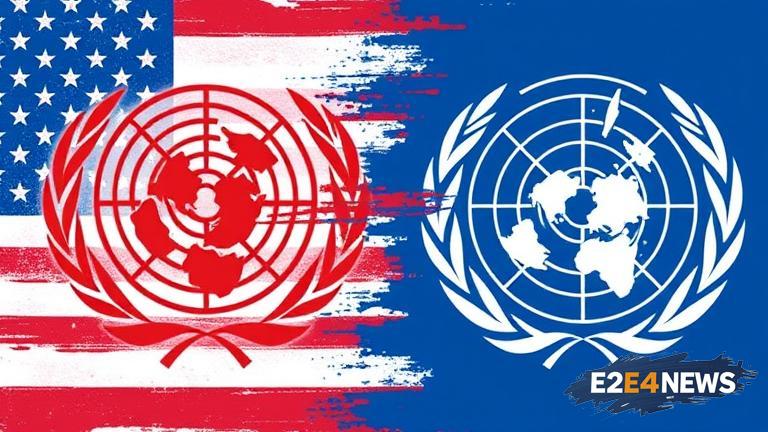The United States has announced its withdrawal from the United Nations Educational, Scientific and Cultural Organization (UNESCO) for the second time, citing the organization’s persistent anti-Israel bias and promotion of Islamic supremacism. This move comes after years of tensions between the US and UNESCO, which has been accused of denying Jewish history and promoting a biased narrative against Israel. The US had previously withdrawn from UNESCO in 1984, but rejoined in 2003. However, the organization’s continued anti-Israel stance has led to renewed tensions. UNESCO has been criticized for passing resolutions that deny Jewish ties to the Temple Mount and the Western Wall, and for promoting a narrative that erases Jewish history in the region. The organization has also been accused of promoting Islamic supremacism, which has been a major concern for the US and other Western countries. The US withdrawal is seen as a significant blow to UNESCO, which relies heavily on US funding. The move is also expected to have significant implications for the organization’s ability to carry out its mission. Despite the withdrawal, the US will continue to participate in some UNESCO programs, such as the World Heritage Center. However, the US will no longer be a member of the organization’s executive board. The withdrawal has been welcomed by Israel and other countries that have been critical of UNESCO’s anti-Israel bias. However, it has been condemned by other countries, including France and Germany, which have expressed concerns about the impact on UNESCO’s ability to carry out its mission. The US withdrawal is also seen as a reflection of the country’s growing frustration with the UN and its agencies, which have been accused of being biased against Israel and the US. The move is expected to have significant implications for the US’s relationship with the UN and its agencies, and may lead to further withdrawals in the future. The US has been a major contributor to UNESCO, providing over 20% of the organization’s funding. However, the US has become increasingly frustrated with the organization’s anti-Israel bias and has sought to reform the organization from within. Despite these efforts, the US has concluded that withdrawal is the best option. The withdrawal is also seen as a victory for Israel, which has long been critical of UNESCO’s anti-Israel bias. Israel has accused UNESCO of promoting a biased narrative against the country and of denying Jewish history. The US withdrawal is seen as a significant blow to UNESCO’s credibility and may lead to further withdrawals in the future. The move is also expected to have significant implications for the organization’s ability to carry out its mission, particularly in the Middle East. The US withdrawal is seen as a reflection of the country’s commitment to standing up for its allies and promoting a more balanced and fair approach to international relations. The move is also seen as a significant blow to the UN and its agencies, which have been accused of being biased against Israel and the US. The US withdrawal from UNESCO is a significant development that is expected to have far-reaching implications for international relations and the UN system. The move is seen as a reflection of the US’s growing frustration with the UN and its agencies, and may lead to further withdrawals in the future. The US withdrawal is also seen as a victory for Israel and other countries that have been critical of UNESCO’s anti-Israel bias. The move is expected to have significant implications for the organization’s ability to carry out its mission, particularly in the Middle East. The US withdrawal from UNESCO is a significant development that is expected to have far-reaching implications for international relations and the UN system.
